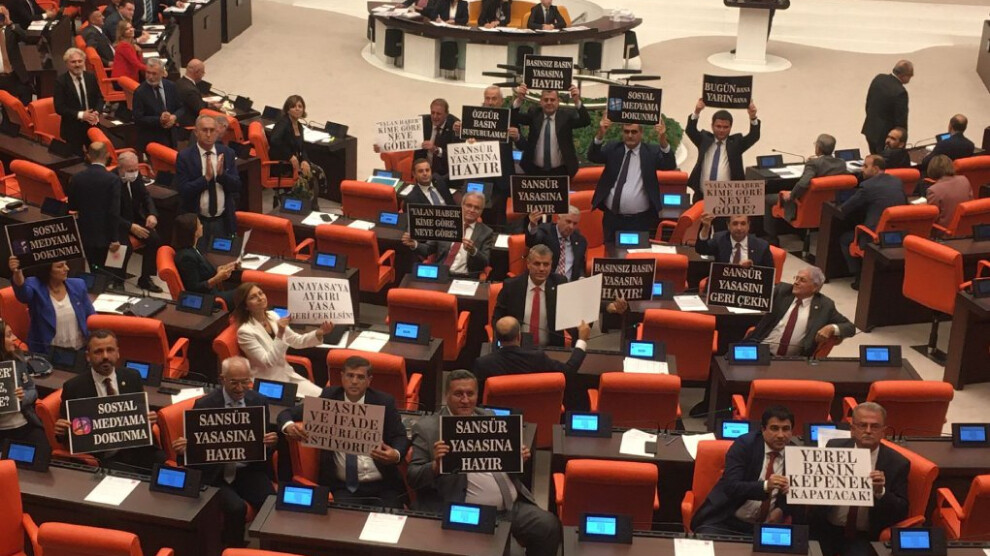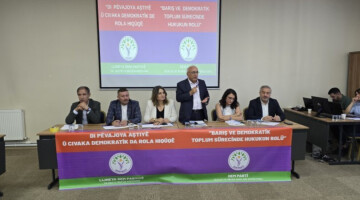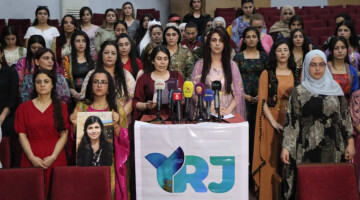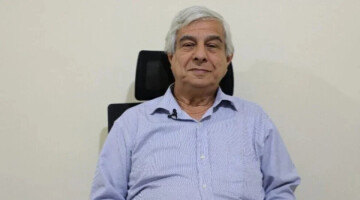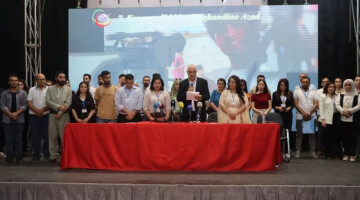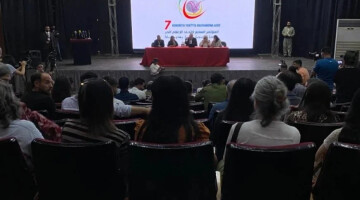The UN Human Rights Office spokesperson Marta Hurtado commented on a sweeping law that introduces prison sentences of up to three years for "disseminating misleading information”, which was passed by the Turkish Parliament this week.
Dubbed as the "censorship law" by the opposition and journalism groups, the law will affect not only news reporting but also social media users. Anonymous social media users may face sentences increased by half.
The most controversial article of the law says those who "publicly disseminate false information about the country's internal and external security, public order and general health, in a way that is suitable for disrupting public peace, with the aim of creating anxiety, fear or panic among the public" will face a prison term of one to three years.
Marta Hurtado said they were “concerned by the adoption on Thursday in Turkey’s Parliament of a package of amendments to various laws that risk substantially curtailing freedom of expression in the country.”
“One of these amendments is a revision of the criminal code that provides for sentences of up to three years in prison “for publicly disseminating false information”. Under international human rights law, freedom of expression is not limited to “truthful” information, but applies to “information and ideas of all kinds”, both online and offline. Restrictions to freedom of expression shall only be envisaged on legitimate and necessary grounds,” Hurtado noted.
According to Hurtado, “These amendments leave significant room for arbitrary, subjective interpretation and abuse. In an already very restrictive context, they risk further limiting people’s rights to seek, receive and impart information as guaranteed by article 19 of the International Covenant on Civil and Political Rights (ICCPR) to which Turkey is party. The recent amendments also risk opening new avenues for repression of permissible speech under international law, including the critical work of journalists and human rights defenders and incentivizing self-censorship.”
“We regret that these laws have been drafted and adopted without meaningful consultation with civil society and media representatives. Legal and regulatory frameworks of such wide potential scope and impact on society as a whole should only be adopted following thorough deliberations and broad public debate.”
The UN Human Rights Office spokesperson added, “Freedom of expression and access to information are necessary for people’s effective participation in public and political life and essential in any democracy. We call on Turkey to ensure full respect for freedom of expression guaranteed under international law.”

